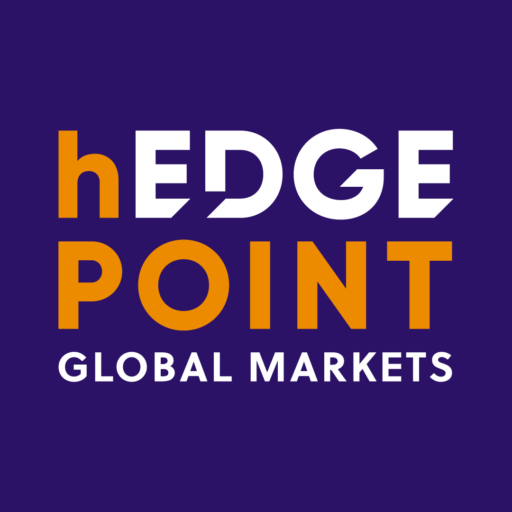Commodities: Which markets are they negotiated in?
Find out what market options are available to trade agricultural and energy commodities.
Commodities are a vital part of the world economy. Some of them, such as those in agriculture and energy, have their prices set on stock exchanges, influenced by world supply and demand. Buy and sell trades, among others, can be negotiated in different types of markets. This is what we’ll look at below.
The whole economic chain involved in commodity markets has its business exposed to numerous fluctuations. Unpredictable macroeconomic and climatic events can cause large movements in input prices, for example. There are many variables, but it’s no longer necessary for us to be at their mercy.
Considering the volatility of such markets, it’s common to use hedging strategies, which work as a kind of “insurance,” and can be used at any stage of the agribusiness or energy chain. They serve to fix commodity prices, reducing the chance of loss, and thus managing risks. But there isn’t just one way to do this. There are diverse markets where commodities can be traded. In this post, we’ll talk a bit about the options available to you, and hEDGEpoint’s performance with them.
What specific types of markets are used to trade commodities?
Currently, the most common trading types in commodity markets are spot purchases and sales, forward purchases and sales, long and short basis (accompanied by commodity and currency hedging), and “Frame and Barter.”
Among the trading alternatives is the market that first gave rise to it, and which is still common. That’s the physical market. In it, commodities can be negotiated directly between buyers and sellers, through cooperatives, resellers, and cereal dealers, via brokers and other formats.
Hedging, on the other hand, is a tool that helps minimize risks. It’s carried out through a futures and/or OTC account (the abbreviation for “Over the Counter” or “On the Counter,” which is called “Mercado de Balcão” in Brazil), through a brokerage firm, bank, or financial agent authorized by local entities.
With this this model, a contract is realized in which the price of the commodity is locked in, and the moment when the price is most convenient for those buying or selling can then be chosen.
In which markets are negotiations carried out, and what are the advantages of each?
The Physical Market: This refers to any market where the product is exchanged for monetary value. The main feature is its immediacy. The negotiation is done on the spot, so that the buyer leaves with the product and the seller with the money. However, if the price goes up, the seller misses out on the chance to make a better sale. However, if the price drops, the buyer misses out on the opportunity to save or buy more for the same amount.
The Forward Market: Here, negotiations are carried out based on a “promise” of purchase or sale, with a future date set and pre-established prices. Although everything is determined beforehand, the transaction actually takes place at the time of product delivery and/or its settlement. An example of this market is the interest rate futures or FX market.
The Futures Market: This is an evolution of the Forward Market, and it works in a similar way. The difference is that in the Forward Market, the buyer can’t sell the purchased bond. In the Futures Market, the buyer/seller can fulfill the contract, or can transfer the acquired obligation to another market participant. In the futures market, the exchange specifies the date and delivery location.
Each contract traded on the futures market has a minimum and standardized lot, which is the minimum amount of a given asset to be traded. When a participant buys a futures contract, the hedger guarantees a maximum bid price, and the seller a minimum ask price.
All such contracts follow certain standards established by the exchange, giving ample clarity and transparency to what they’re trading.
The OTC: In Brazil, the name “Over the Counter” is called “Mercado de Balcão.” It’s where securities that aren’t listed on the stock exchange are traded. The model is also used by hEDGEpoint via the Options Market, where the rights to buy and sell an asset are negotiated, as in the futures exchange market.
In this format, it’s possible to protect oneself against unfavorable price negotiations, as well as take advantage of price appreciation beyond that pre-established by the parties.
To hedge at hEDGEpoint, we use the Futures, Options, and OTC markets. We always like to emphasize the importance of understanding the financial and commodity markets (agricultural or energy, depending on your target performance) in order to experience the best results.
What are the key benefits of having a partner specialized in hedging for these negotiations?
As we mentioned earlier, these operations require extensive knowledge of financial markets. In the case of hEDGEpoint, our specialists not only bring this expertise, but also provide keen insights into specific agricultural and energy commodities.
hEDGEpoint is a commodity risk management company that specializes in financial tools to protect producers, consumers, buyers, sellers, and other market agents from price fluctuations. To offer these products, we use both technology and market intelligence to make essential decisions based on market fundamentals.
Our team is highly qualified, and possesses the necessary knowledge to map future trends, and thus deliver the best forecasts.
hEDGEpoint is present globally, and always ready to serve you at any time, in any place. Get in touch with an expert today to find out more about how to use this instrument to favor your business.






